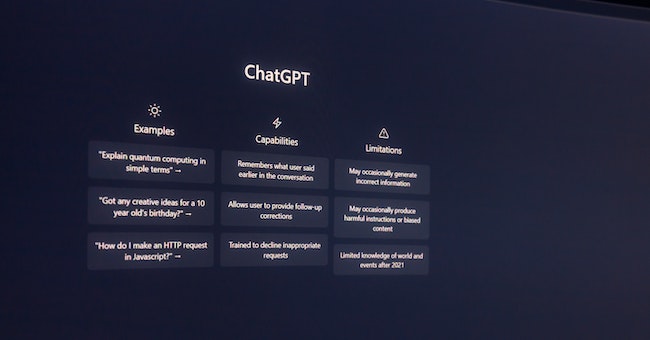Time Management Made Easy: A Proven Learning Guide for Students

Introduction
Time management refers to the practice of effectively utilizing and organizing one's time to accomplish tasks and achieve goals. It involves prioritizing activities, setting deadlines, and allocating time for different tasks. In today's fast-paced world, time management has become no less than an indispensable skill for all walks of life.
In the context of academics and school education, the ability to make use of time in a reasonable way is especially essential for students who seek to perform properly and to maintain a healthy work-life balance. Therefore, in today's article, we will discuss the significance of such an ability and explore possible ways to forge it in an efficient manner.
Why is Time Management Considered a Soft Skill?
Time management is considered a soft skill because it is a personal attribute that involves the ability to effectively and efficiently allocate and utilize one's time. Soft skills, as a notion compared with "hard skills", are non-technical skills that are valuable in various aspects of life, including education, career, and personal relationships. Unlike hard skills that are specific to a particular field or task, soft skills are transferable and applicable across different contexts.
Here are some reasons why time management is considered a soft skill:
Universality: Time management is essential for individuals in all walks of life. Whether you are a student, professional, or homemaker, effectively managing your time is crucial to achieving your goals and maintaining a balanced life.
Versatility: Time management skills can be applied in multiple domains. The ability to prioritize tasks, set goals, and organize one's schedule efficiently is valuable in academic settings, workplaces, and personal life. It is a skill that transcends specific roles or responsibilities.
Increase on Productivity: Effective time management directly impacts an individual's productivity. When one can allocate time appropriately, set realistic deadlines, and focus on important tasks, they can accomplish more in less time. Improved productivity leads to better outcomes and success in various endeavors.
Stress Reduction: Poor time management often leads to increased stress levels. When individuals are unable to effectively manage their time, they may experience a sense of overwhelm, missed deadlines, and a constant feeling of being behind. By developing time management skills, individuals can reduce stress, maintain a sense of control, and approach tasks with a calmer mindset.
Self-Discipline and Accountability: Time management requires self-discipline and accountability. It involves making conscious choices about how to spend time, resisting distractions, and adhering to set schedules or deadlines. Developing these qualities enhances personal growth, responsibility, and reliability.
Collaboration and Teamwork: Time management is not only beneficial on an individual level but also in collaborative settings. When individuals manage their time effectively, they contribute to the overall efficiency of teams or groups. They can meet deadlines, coordinate tasks with others, and ensure that projects progress smoothly.
Adaptability: Time management skills help individuals adapt to changing circumstances and demands. Prioritizing tasks, reorganizing schedules, and adjusting goals based on new information or unexpected events become easier when one has a foundation of effective time management.
Overall, time management is considered a soft skill because it is a fundamental aspect of personal and professional success. It empowers individuals to make the most of their time, increase productivity, reduce stress, and maintain a healthy work-life balance. By honing this skill, people can enhance their overall effectiveness and achieve their goals more efficiently.
Time Management Skills for Middle School Students?
Key Principles of Time Management
Prioritization: Learn to identify tasks that are important and urgent and allocate your time accordingly. Focus on completing high-priority tasks first.
Planning: Create a schedule or to-do list to outline your tasks and deadlines. Break larger tasks into smaller, manageable chunks.
Time estimation: Develop the ability to estimate the time required for each task. This will help you allocate appropriate time slots and avoid overcommitting.
Organization: Keep your study area and materials well-organized. This includes having a tidy workspace and utilizing tools like folders, planners, or digital apps for task management.
Common Time Management Challenges for Students
Students often face various time management challenges due to the multiple responsibilities and tasks they need to juggle. Here are some common time management challenges that students encounter:
Procrastination: Procrastination is a significant challenge for many students. It involves delaying tasks or assignments until the last minute, resulting in increased stress, lower-quality work, and missed deadlines. Procrastination can stem from factors such as poor task prioritization, lack of motivation, or difficulty in getting started.
Distractions: Students face numerous distractions that can hinder effective time management. These distractions can include social media, online entertainment, smartphones, or noisy environments. Succumbing to distractions can disrupt focus and lead to wasted time.
Overcommitment: Students often engage in multiple activities simultaneously, such as attending classes, participating in extracurriculars, and maintaining social relationships. Overcommitment can lead to a scarcity of time, causing students to struggle with completing tasks within deadlines and compromising the quality of their work.
Lack of Prioritization: Difficulty in prioritizing tasks can make it challenging for students to allocate time effectively. They may spend excessive time on less important activities while neglecting critical ones. This can lead to a sense of being overwhelmed and not accomplishing essential tasks.
Inadequate Planning: Insufficient planning or failure to create a structured schedule can contribute to time management challenges. Without a clear plan, students may struggle to allocate time appropriately, resulting in disorganized and inefficient work patterns.
Unrealistic Time Estimation: Students often underestimate the time required to complete tasks or assignments. Misjudging the time needed can lead to inadequate planning and a lack of sufficient time for other important activities. This can result in rushed work or missed deadlines.
Lack of Self-Discipline: Students may struggle with maintaining self-discipline, especially when it comes to managing their time effectively. Distractions, lack of motivation, or difficulty staying focused can lead to poor time management habits and a lack of consistency in task completion.
Difficulty Saying No: Students may find it challenging to say no to additional commitments or requests from others. This can lead to overcommitment and a lack of time for essential tasks, causing stress and compromising overall time management.
Identifying Strengths and Weaknesses in Time Management
Self-reflection is a key stepping stone to personal growth, since it cultivates our sense of past flaws and the precision of planning for future improvement. In the case of time management, it is undoubtedly beneficial to reflect on your current time management practices to identify your strengths and weaknesses.
Consider the following questions:
Do you have a structured plan or schedule for your tasks?
Are you able to meet deadlines consistently?
How well do you handle distractions and avoid procrastination?
Do you tend to overcommit or struggle with prioritization?
Are you able to maintain focus and concentration during study sessions?
In most cases, upon pondering on such questions, you will gradually get to know your strengths and shortcomings when it comes to properly allocating your time and effort.
Setting Goals for Improving Time Management Skills
Setting goals for improving time management skills is essential for students to enhance their productivity and achieve better time management habits. The benefits of doing so include greater motivation and better focus, clearer direction, measurable progress, sense of responsibility, specified small tasks, greater flexibility, etc.
To set effective goals for improving time management skills, students can follow these steps:
Identify Areas of Improvement: Reflect on current time management practices and identify specific areas where improvement is needed, such as reducing procrastination, better prioritization, or minimizing distractions.
Set Specific and Measurable Goals: Define clear, specific goals that are measurable and time-bound. For example, completing assignments one day before the deadline or dedicating a specific amount of focused study time each day.
Break Down Goals: If the goals are large or complex, break them down into smaller, manageable tasks. This allows for better planning and progress tracking.
Create an Action Plan: Outline the steps or strategies needed to achieve the goals. This may involve implementing techniques like creating schedules, using productivity tools, or establishing routines.
Monitor and Evaluate: Regularly review progress toward goals and evaluate the effectiveness of the strategies being implemented. Adjust or refine the goals and action plan as necessary.
Celebrate Achievements: Recognize and celebrate milestones or achievements along the way. This positive reinforcement boosts motivation and encourages continued efforts.
By setting goals for improving time management skills, students can become more effective in managing their time, enhancing productivity, and achieving their academic and personal objectives.
Online Courses to Improve Time Management Skills
Since we are all living in a digital age and almost every question has its miscellaneous answers that can be found via a search engine, in the case of time management improvement, there are also a huge number of courses delivered online popping up. To relieve such overwhelming burden of trying to narrow down the most worthwhile courses, we highly recommend the Time Management Online Courses Catalog for your reference, which can serve as something that helps "manage" your time in a clever way.
Free Time Management Tutorial - Time Management Mastery Course - Enhanced Productivity
The "Free Time Management Tutorial - Time Management Mastery Course - Enhanced Productivity" is a comprehensive course that provides a scientific approach to time management. It aims to enhance productivity and make time management easier by teaching learners the skills of time management mastery. The course covers various concepts such as goal setting, enhanced concentration and focus, increased productivity and creativity, and overall management skills.
Pros of this course:
Enhanced productivity
Clear and concise material
Teaches different tactics
Useful content
Established provider
Free of cost
Time Management Techniques 101: The Beginner& Guide
This is a comprehensive course aimed at helping learners develop effective time management skills. The course covers the fundamentals of time management, including maximizing productivity, improving efficiency, and mastering the art of multitasking. It also teaches learners how to automate tasks to enhance their time management abilities. It is particularly useful for individuals who want to become more productive and efficient in their daily lives.
Pros:
Self-employed/entrepreneur focused
Excellent content
Good match for beginners
Helpful and informative
Free of cost
The Complete Time Management And Productivity Course
"The Complete Time Management And Productivity Course" is a comprehensive course that aims to enhance productivity and time management skills. It covers principles of time management and productivity, goal setting, planning, organization systems, and proper execution. The course also teaches 15+ time management and productivity techniques and exercises to help individuals accomplish more in less time. It focuses on increasing motivation, concentration, focus, and stimulating the brain for optimal results. By implementing the skills taught in this course, learners can develop personalized strategies to improve productivity and time management.
Pros:
Comprehensive content
Experienced instructors
Suitable for beginners
Practical exercises and techniques
Free of cost
Conclusion
In a nutshell, for students, mastering time management skills is of utmost importance in navigating the demands of academic life effectively. By understanding the fundamental principles of time management, recognizing and addressing common challenges, and setting tangible goals for improvement, you can greatly enhance your productivity and overall well-being.
Online courses specifically designed to improve time management provide valuable resources, strategies, and techniques tailored to the unique needs of students. By embracing these opportunities for growth and honing their time management skills, you can expect to experience increased academic success, reduced stress levels, and a better overall balance between their studies and personal life.
Now, with all this said, take charge of your time, invest in your future, and unlock your full potential through the power of effective time management. Start today and witness the positive impact it can have on your academic journey and beyond.





